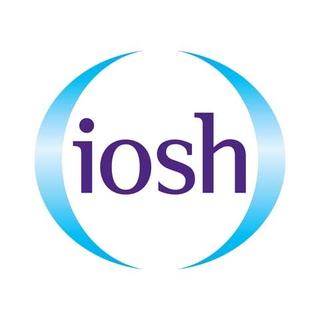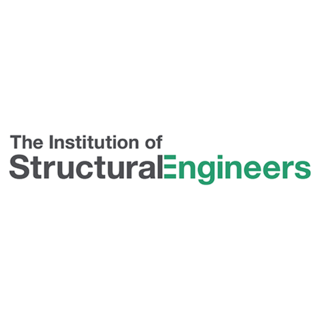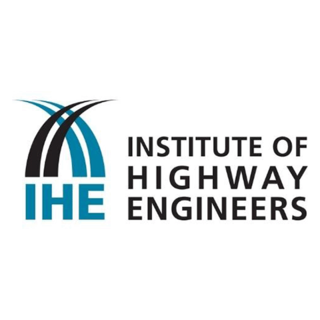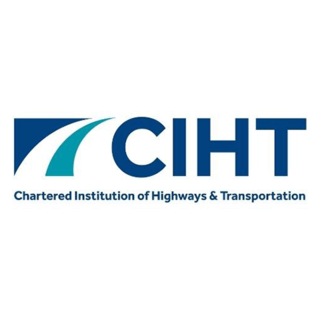
MSc Safety and Risk Management
Skip to section
Key information
- Mode of delivery
- Online
- Start date
- September, January, May
- Duration
- Varies
- Qualification
- MSc
Contact
Contact our enquiries team
Contact usOverview
Public awareness of hazards and risks has enhanced the importance of safety assessment and management in today's increasingly litigious society. Risk and safety issues need to be evaluated in a structured and calculated manner but in the light of an overall organisational strategy.
This course aims to provide students with advanced knowledge of risk assessment techniques, the public and individual perception of risk, and how decisions are made in competitive business markets. The course focuses on practical applications of safety methodologies, ergonomics and human factors, and safety and risk management techniques. It will develop students' skills to undertake safety studies and manage safety and risk to the best national and international standards.
If you are interested in our courses you can join our Linked In group Safety Courses at Heriot-Watt where you can link up with other applicants, current and previous students and potential employers. Applying to join needs approval from the group owner which may take a week or two.
Online learning
This course can be studied via Online Learning, ideal for those in employment or with other commitments, providing flexible study options that fit around work or family. View our How online learning works pages to find out more. It can also be studied on-campus full-time or part-time.
Graduate profiles
Visit our Graduate Profiles page to learn what some of our graduates said about their experiences studying Safety and Risk Management at Heriot-Watt University.
Degree duration
Online Learning course - 2½ - 8 years. Most students intend to complete their studies via online learning within 2-3 years.
Industry links
This course and the associate course Safety, Risk and Reliability Engineering, have been developed with the assistance of staff and ex-graduates working in relevant companies. We are also developing links with a wide range of companies in the risk management fields.
In addition, this course is also supported by the Civil Engineering Industry Advisory Committee, which includes representatives from major multi-national employers AECOM, ARUP, Balfour Beatty, Halcrow, Jacobs and WSP Group. This committee convenes regularly and advises on the course content and structure, ensuring quality, up-to-date content and relevance to industry needs.
Meet our students
Heriot-Watt graduate, Peter Gennery, talks about his experience of studying a MSc Safety and Risk Management degree online.
Course content
Year 1
The MSc/Postgraduate Diploma in Safety and Risk Management is only available by attendance-free distance learning.
The degree comprises eight taught courses. Heriot-Watt Online students must first take exams in two courses of the degree, Human Factors Methods and Learning from Disasters. Based on the results from these courses students continue on the degree at MSc or at PG Diploma level.
All courses have written examinations and some have compulsory coursework elements. MSc students are also required to complete a Masters dissertation.
Students can opt to sit the examination in any of the three semesters. The course will be accessible in self-study mode with access to all of the learning materials and tutor support.
Degree structure
Semester 1
Core
- Human Factors Methods
- Risk Assessment and Safety Management
- Project Management: Theory and Practice
- Value and Risk Management
Semester 2
Core
- Human Factors in the Design and Evaluation of Control Rooms
- Fire, Explosions and Process Safety
- Learning from Disasters
Semester 3
Core
- Research Dissertation (Civil Engineering)
Any semester
Core
- Sustainability for Construction Professionals
Detailed degree guide
Understanding, Knowledge and Cognitive Skills
Demonstrate understanding of:
- qualitative risk assessment procedures widely used in current safety management and in the writing of safety cases
- project management and risk reduction for safety related scenarios
- why safety management systems fail, how to predict failures, and how decisions are taken based on those predictions
- how safety management can be applied across different industries
- how safety management links to other management systems such as environmental management
- the ability to anticipate failures of systems or in human behaviour, and how decisions are taken based on those predictions
- the scientific principles that underlie many hazardous situations
- the professional responsibilities of a safety manager
Scholarship, Enquiry and Research (Research Informed Learning)
Be able to:
- demonstrate an understanding of technical advances in safety engineering
- show familiarity with a broad range of technical literature;
- plan, conduct and report a self-directed research project;
- use problem-solving skills in a variety of contexts;
- apply numerical and analytical skills and engineering knowledge in the analysis of safety related problems
Approaches to Teaching and Learning
The programme is based on eight fully written courses, which are either self-contained, or are based on structured study from a text book (a required text for the module). All students on this programme are studying primarily by distance learning. At masters level students are expected to take a large degree of responsibility for their own studies. Students rely on a practical study guide, detailed course texts (or a required text book), fully worked solutions, email, discussion groups, as well as discussion with staff, other students and more experienced work colleagues in most cases. Courses usually include objectives, theory, applications in the real world, worked examples, exercises, and review questions that usually form part of the formative assessment and feedback for the course. Some courses have a coursework component to address a deeper level of understanding of more complex and lengthy problems or where practical software applications are required.
Approaches to teaching and learning are continually reviewed and developed with the aim of matching them to the abilities and experiences of students, with regard also for the subject area. Industry feedback on course content is also used in the updating and improvement of all courses. Specific details about teaching and learning methods are provided in the appropriate course descriptors.
Assessment Policies
The programme uses a range of assessment types.
Coursework is used to develop problem solving skills, to demonstrate mastery of techniques taught as part of the course that would be too lengthy to undertake as exam questions or where software applications are required. Coursework also helps develop professional report writing skills with emphasis on correct report structure, writing style, resume, and referencing. All courses have some form of formative assessment that provide self, peer or staff feedback as required.
Examinations make up the majority of summative assessment as these are the best way to be certain of testing the capabilities of the individual student against the course aims
The final MSc dissertation allows students to demonstrate good research skills and a deeper level of critical thinking and analysis than can be assessed by exam.
Approaches to assessment are continually reviewed. Specific details about methods of assessment are provided in the appropriate course descriptors.
Fees and funding
Tuition fees
| Status | Per course [footnote 1] | Dissertation/Project [footnote 1] |
|---|---|---|
| UK / EU / Overseas | GBP1480 | GBP1910 |
- The tuition fees listed are for courses starting between September 2023 and August 2024. Fees normally increase annually. Find out more about our tuition fees.
Additional fee information
Financial support
Tuition fee loans are available to Scottish distance learning students on some taught postgraduate courses. Find out more from the Students Awards Agency Scotland (SAAS)
Scholarships and bursaries
We aim to encourage well-qualified, ambitious students to study with us and we offer a wide variety of scholarships and bursaries to achieve this. Each year, hundreds of students enhance their educational experience through a variety of Heriot-Watt and externally funded scholarships, including opportunities funded by the University's generous alumni community, based all over the world.
View our full range of postgraduate scholarships.
Entry requirements
Applicants to the MSc programme will normally:
- have a good undergraduate degree (minimum 2:2 honours or equivalent) in engineering or a relevant science discipline, or
- demonstrate equivalent academic ability based on industrial experience or membership of a professional institution.
Students will have access to the short course 'Introduction to Digital Study and Academic Skills', to prepare for postgraduate study.
Recognition of Prior Learning
We are committed to providing study opportunities to applicants who have a wide range of prior experiences through Recognition of Prior Learning (RPL). For more information on RPL, please contact the Online Admissions Team (egis-idl-apps@hw.ac.uk) ahead of application. We can only consider requests for RPL at the time of application to a course of study.
English language requirements
Applicants will need a good English Language ability to succeed in their programme. Those for whom English is not their first language should have,
- Achieved a minimum of IELTS 6.5 or equivalent and
- Or have successfully completed courses (of 1 year or more in duration) delivered in English.
Why Heriot-Watt?
Flexibility and affordability
Study at a time and pace that suits you, and even while you work. HW Online offers pay-as-you-study courses and fees inclusive of exams and study materials, meaning you can focus on success, not extra costs.
Your career
Employers around the world actively seek out our graduates because they are work-ready. All our degrees are career-focused and relevant to the needs of industry. Around 95% of our students are in employment or further study within six months of graduating.
Online events
We host online events throughout the year, giving you the opportunity to speak to our academic teaching staff, meet students, find out what it is like to study using our Virtual Learning Environment (VLE) and discover how to enrol.
Lifelong connections
Upon completing your studies you will automatically join the UK's oldest alumni association The Watt Club, with 147k members worldwide.
We are accredited by the following organisations
At Heriot-Watt University we develop degrees that are relevant for the world of work. We work with Professional bodies and Institutes to gain appropriate Accreditations and Professional Memberships for your industry. Find out below how this degree aligns to industry.





_rdax_320x320_100s.jpg)



